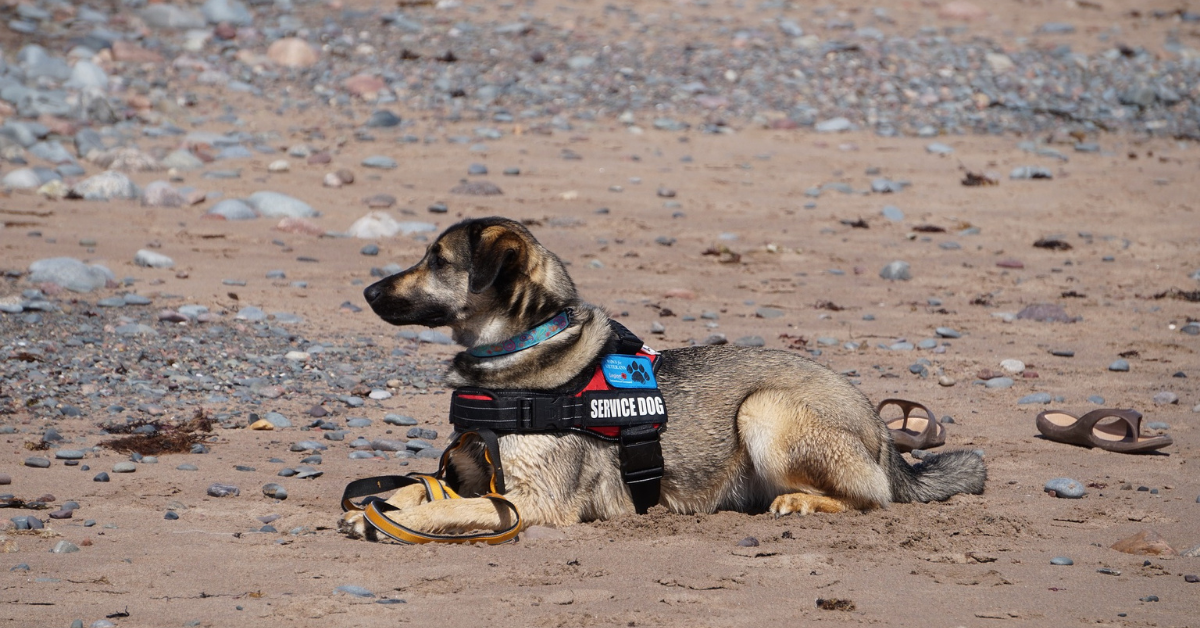
Organizations that Provide Assistance Dogs
According to the American’s With Disabilities Act (ADA), “Service animals are animals that are individually trained to perform tasks for people with disabilities such as guiding people who are blind, alerting people who are deaf, pulling wheelchairs, alerting and protecting a person who is having a seizure, or performing other special tasks. Service animals are working animals, not pets.” This article will breakdown the various organizations that provide service animals as well as provide you with links to online resources where you can find out more information about obtaining an assistance animal or ways to volunteer.
Canine Assistants http://www.canineassistants.org/ provides trained dogs to assist as service dogs, companion dogs and seizure response dogs. Their assistance dogs are trained for people with mobility issues as well as those prone to seizure (epilepsy/diabetic response). Visit their website for information on the application process.
Guide Dog Foundation www.guidedog.org Originally established to service the visually impaired community, The Guide Dog Foundation now has a program called “Capable Canines” that offers service, companion and therapy dogs to individuals and institutions. While this program is currently limited to a few states (Florida, Georgia, Maryland, portions of New York, Virginia and Washington DC), they also have a unique program providing what they call “facilities dogs” to nursing homes and hospitals.
Canine Companions for Independence® www.cci.org provides trained dogs to assist as service dogs, facility dogs, skilled companion dogs and hearing dogs.
Dogs for the Deaf www.dogsforthedeaf.org provides assistance dogs trained to alert handlers to “household sounds”; dogs trained “to enhance the safety of children with autism; program assistance dogs used by professionals (teachers, counselors, physicians) in their work with clients; and Miracle Mutts (Special Dogs for Special People), which “provide companionship, motivation, and emotional support to people”. Dogs for the Deaf have two other programs—Harmony’s Hounds (Dogs with Special Needs) and Career Change Dogs—which offer dogs that for whatever reason, were unable to complete the training program or were deemed unsuitable as a hearing dog, but would make a wonderful family pet.
Psychiatric Service Dog Society http://www.psychdog.org/ does not have a training program, but they do offer education and research to help those with mental or emotional issues obtain and train a psychiatric service dog to help manage symptoms.
Freedom Service Dogs www.freedomservicedogs.org has programs to train dogs to help those with mobility issues.
There are various service dog-training programs specifically geared toward veterans.
Operation Freedom is a partnership developed between Freedom Service Dogs and the United States Veterans Administration to help veterans and military personnel “through their transition from active duty and combat to civilian life.”
Hero Dogs Inc. http://www.hero-dogs.org/ trains and places service dogs with military veterans who have been injured and/or disabled while serving in the U.S. Armed Forces.
Patriot PAWS http://www.patriotpaws.org/ “trains and provides service dogs for the benefit of disabled American Veterans in order to help restore their physical and emotional independence”.
For many of our returning veterans, the injuries and scars are invisible. Dogs trained specifically for placement with a veteran have the temperament and training to assist with mobile disabilities as well as emotional and mental issues such as PTSD, depression and anxiety.
Assistance Dogs International, Inc. http://www.assistancedogsinternational.org/ is a coalition of non-profit organizations that provide training and place assistance dogs with the disabled.
International Association of Assistance Dog Partners (IAADP) http://www.iaadp.org/welcome.html offers comprehensive information about the assistance dog community as well as provides links to resources associated with international travel.
Many of these organizations use shelter dogs in their training programs, which helps place many dogs that would otherwise be destroyed due to overpopulation.
Keep in mind that obtaining an assistance dog can take one to five years depending upon the organization. This article is meant only to provide information on some of the largest and most well known organizations training and providing service dogs for the disabled. It is not intended as a comprehensive list, nor as a recommendation toward any particular service(s).There are many other organizations serving specific geographic areas or disabled populations. Finding an organization that offers assistance dogs to suit your needs may take time as some organizations have a lengthy application process or only place dogs with handlers who live within driving distance. For some, who don’t/can’t wait, another option is to obtain a dog and find a trainer on their own. For more information on finding an assistance animal or trainer, visit Service Dog Central http://www.servicedogcentral.org/content/node/262.






